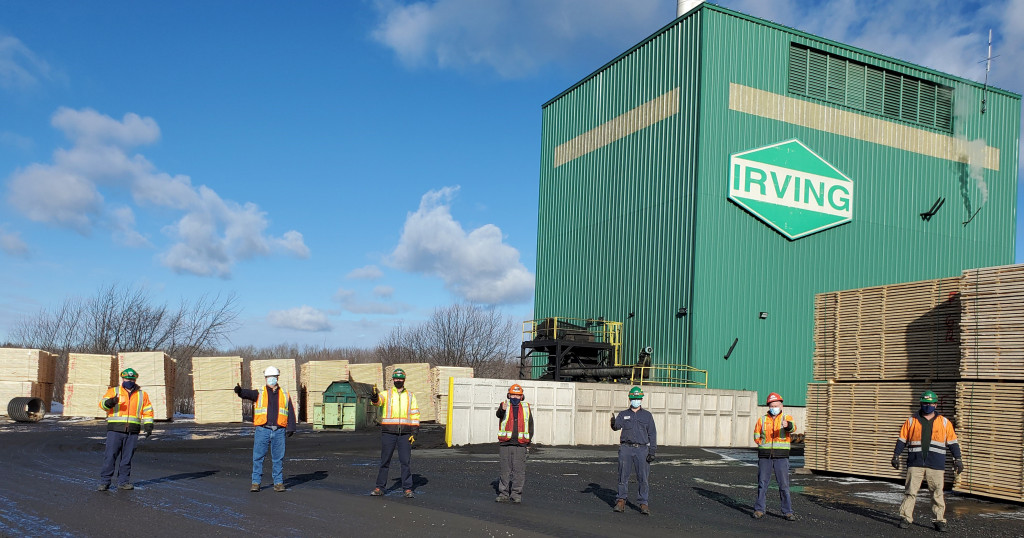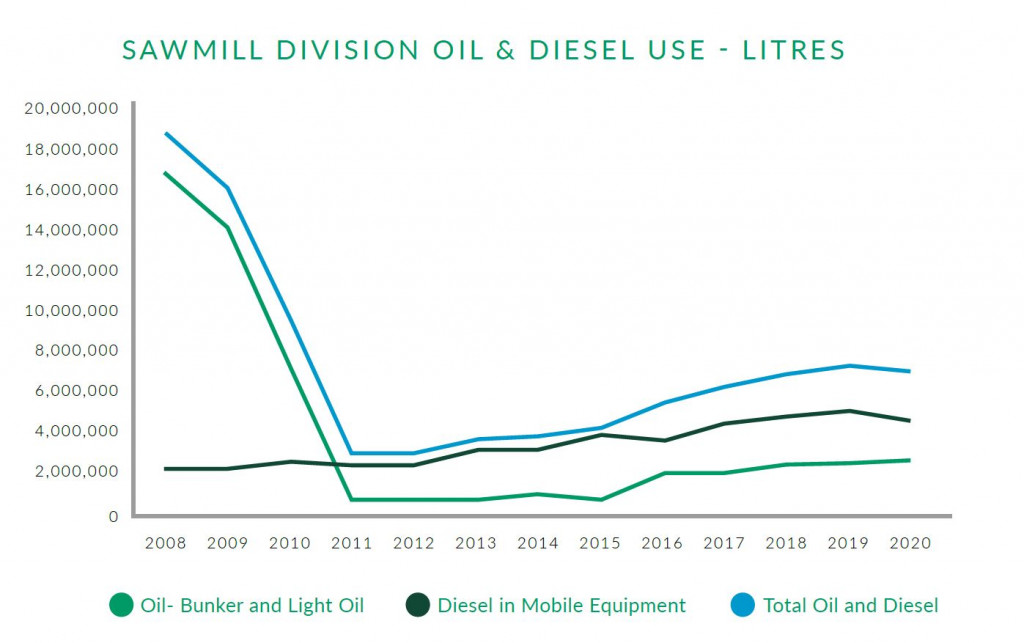J.D. Irving, Limited, (JDI) is an integrated forest products company based in New Brunswick, Canada. JDI forests supply The Home Depot’s eastern stores with lumber.
While JDI is a leader in ecological forest management practices, they are quickly becoming a leader in clean energy. The company has begun investing in biomass boilers to aid in the drying process of lumber. It’s an investment that is paying off for the planet.

When it comes to lumber production, there’s more to the process than cutting and milling. For example, in North America, construction regulations require that softwood lumber used for interior building applications have a moisture content of less than 19 percent, which means that wood must also be dried. Drying wood requires heat and energy. Historically, such processes were fueled by heavy oil. However, today’s JDI sawmills operate biomass boilers instead.
The switch to biomass boilers began in 2014, following investments by JDI of $37 million. The biomass used is mainly bark recovered from logs consumed in the sawmill for lumber production and one of the ways the company ensures that 100 percent of every tree is used. As a result of transitioning from oil to biomass, JDI has reduced oil consumption by 11.5 million liters a year and lowered its manufacturing costs.

In addition to switching its main source of steam generation from heavy oil to biomass, JDI has also sought ways to use steam production to generate electricity. In 2011, at the Dixfield, Maine sawmill site, the company commissioned its first turbine recovering steam system, also known as a back-pressure turbine. This turbine uses the pressured steam produced through the drying process to make electricity.
Since then, JDI has commissioned two additional back-pressure turbines, one located in Ashland, Maine and another in Chipman, New Brunswick. To acquire these two new turbines, the company has invested $3.5M. With a total of three turbines, JDI will now have a capacity to produce over 2.5 Megawatts of electricity annually. That’s enough to power over 1,000 homes.






